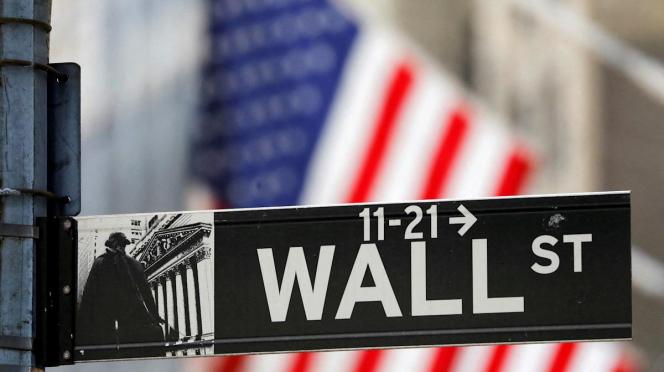Table of Contents Show
RFK Jr. Is Playing Down His Anti-Vaxxer Past — But He’s Still Casting Doubt
In order to find any information on Robert F. Kennedy Jr.’s vaccine policy on his Make America Healthy Again website, you must first scroll through sections asking for donations, official MAHA merch, and an ad offering the opportunity to “secure your place” on a tile in a mosaic of Trump and RFK Jr. shaking hands. Only then, after clicking through eight pages of videos, will you find a video titled “My Take on Vaccines.” The 31-second clip offers a one-sentence explanation, void of details but saying enough to cast doubt on decades of vaccine research, development, and testing: “If you want a vaccine, you ought to be able to get a vaccine, but you ought to know the safety profile and the risk profile of that vaccine and the efficacy of that vaccine — and that’s it.”
Kennedy, Trump’s pick to lead the Department of Health and Human Services, has long been vocal in the anti-vaxxer movement — yet vaccine reform wasn’t a centerpiece of Kennedy’s White House run, nor has it been in his ongoing MAHA campaign. In June 2023, two months after launching his bid for the presidency, Kennedy told NBC News, “If anybody wants to talk to me about vaccines, I’ll talk to them. But it’s not an issue that I’m leading with.”
Recently, when he’s answered questions about vaccines, Kennedy has claimed that he’s “never been anti-vaccine.” But less than 18 months ago, in July 2023, he told podcaster Lex Fridman that “there’s no vaccine that is, you know, safe and effective.” This blatant backtrack is also difficult to believe coming from the chairman-on-leave of Children’s Health Defense (CHD), the country’s largest anti-vaccine organization, who also happens to have a history of circulating misleading claims. In fact, a 2021 study of verified Twitter accounts deemed Kennedy’s personal account the top “superspreader” of vaccine misinformation on the platform, responsible for more than 13 percent of all retweets of misinformation.
Editor’s picks
Now that he may be joining the second Trump Administration, the conspiracy theorist and founder of CHD could not only oversee the department’s $1.7 trillion budget, but its 13 operating divisions as well, including the Centers for Disease Control and Prevention (CDC), Food and Drug Administration (FDA), and the National Institutes of Health (NIH).
While Kennedy’s typical anti-vaccine messaging was noticeably absent on the campaign trail, it has returned since he joined up with Trump, albeit in a different, unexpected form: milquetoast statements about vaccines and research that almost anyone would agree with, regardless of their political affiliation. While this bizarre doublespeak appears reasonable on the surface, in reality, undermines public health, and jeopardizes the country’s future.
Hiding in language
Some of Kennedy’s most detailed policy proposals thus far came in a September op-ed for the Wall Street Journal, a month after he threw his support behind Trump. The piece described a number of goals he hoped to achieve were he to become part of the administration, like devoting half of NIH research budgets to “preventive, alternative, and holistic approaches to health”; not permitting food stamps to be used to buy soda or processed foods; and reinstating the Presidential Fitness Test. But it didn’t mention vaccines.
The day after the election, Trump handed down three tasks to Kennedy: “Clean up corruption” in government agencies, “return” to evidence-based science, and end chronic disease. Vaccine reform was conspicuously absent from that list.
Another way Kennedy casts doubt on the safety and efficacy of existing vaccines is by questioning the science behind their research, development, and testing. This sneak attack can sound a lot like the second item Trump’s agenda: “Returning [to] gold-standard, evidence-based science.” But this is the type of research that the NIH, CDC, and FDA have been carrying out all along.
By calling for empirical research testing the safety and efficacy of vaccines, Kennedy is suggesting that it’s not currently taking place at these agencies. Other times, he opts for a more obvious assault, like in a Nov. 6 interview with NPR, when he said that the “science on vaccine safety particularly has huge deficits, and we’re going to make sure those scientific studies are done.” Or in June 2023, when he claimed that “vaccines are not safety tested” and that none of the vaccines recommended for American children have “ever been subject to a pre-licensing placebo-controlled trial.”
Getting to the truth
This tactic doesn’t sit well with Wilbur Chen, MD, an infectious disease physician-scientist, professor of medicine at the University of Maryland School of Medicine, and former member of the CDC’s Advisory Committee on Immunization Practices (ACIP).
“Kennedy asks: ‘Do we really have safety information [about vaccines]?’ Yes, we do,” he tells Rolling Stone. “But now people are like, ‘Oh, well, vaccines aren’t safe, maybe.’ So it doesn’t matter whether it’s based in fact or not — just the fact that you ask that question already raises doubt in some people’s minds, and that’s already harmful.”
To be clear, rigorous vaccine-safety testing already takes place, as FDA spokesperson Cherie Duvall-Jones tells Rolling Stone. All vaccines licensed in the United States are “supported by well-controlled clinical trials that have established their safety and effectiveness,” she says, noting that the FDA continues to monitor their safety after they are marketed.
As for the question of whether vaccines for children receive placebo-controlled trials, there could be a very good reason for that: When vaccines are being developed, clinical studies typically include a control group consisting of people who may receive an FDA-approved vaccine, a placebo control, or another control — like the non-active ingredients in the vaccine, Duvall-Jones explains. People in the study receiving the vaccine are compared to people in the control group in order to evaluate the safety and effectiveness of vaccines, and to keep track of possible side effects.
However, “a placebo control is not always required to determine the safety or effectiveness of a vaccine,” Duvall-Jones explains. “In some cases, inclusion of placebo control groups is considered unethical.” This can be the case if a proven vaccine or treatment exists, but is withheld from participants — potentially putting their health at risk.
Asking questions
In addition to calling for empirical research and vaccine safety testing, both of which are standard practice, Kennedy also stresses the importance of making “informed choices” about vaccines. “It’s implying that doctors and providers haven’t been having these discussions with patients over the decades, and he’s assuming that somehow, information has been withheld,” Chen says.
This also undermines existing vaccine mandates for schools, suggesting that parents who are complying with them aren’t making informed decisions about their children’s health. “We still have general faith in our CDC and FDA, and I think if institutions give any question or cause for pause, you could have greater hesitancy for vaccinations among parents and children,” says Howard P. Forman, MD, professor of radiology and public health, as well as the director of the health care management program at the Yale School of Public Health.
Along the same lines, when Kennedy employs this language of informed decision-making, it’s often accompanied by claims that vaccine trial data are being suppressed. “People ought to have a choice, and that choice ought to be informed by the best information,” he told NBC News on Nov. 6. “So I’m gonna make sure the scientific safety studies and efficacy studies are out there, and people can make individual assessments about whether that product is gonna be good for them.” Kennedy has also indicated that he’d like to review vaccine safety data so he can use it to pull existing vaccines from the market. Fortunately for him, he doesn’t have to look far: the scientific safety and efficacy studies are published in peer-reviewed journals, and the data they yield are available to the public online.
But according to Paul Offit, MD, an infectious disease physician and director of the Vaccine Education Center at the Children’s Hospital of Philadelphia, Kennedy’s calls for vaccine safety data are strategic.
“He’s of the belief — because he’s a conspiracy theorist — that everyone is deeply in the pocket of the pharmaceutical industry, and therefore is not telling you the real story,” Offit tells Rolling Stone. “And he says ‘I’m going to make them show us the real data,’ as if things were being hidden. Nothing is being hidden. But his notion is that it’s being hidden, and ‘Only I know the truth — you only need to trust me.’”
Kennedy’s decades-long anti-vaccine stance appears to be at least partially based on a since-retracted and disproven 2005 article published by Rolling Stone and Salon in which he makes the argument that vaccines containing thimerosal cause autism (claims that have since been disproven), and that there was a massive coverup to hide these risks from the public. The retraction occurred in 2011, shortly after the 1998 study in The Lancet that first established the link between vaccines and autism was retracted by the journal and found to be fraudulent.
Since then, Kennedy, the CHD, and the rest of the anti-vaccine movement have been chipping away at the country’s confidence in vaccines — preying on parents in particular and telling them to “trust their own ability” to make decisions about their child’s health. In fact, they’ve already made headway in this area.
In October, the CDC reported that during the 2023-2024 school year, 3.1 percent of kindergartners had a nonmedical exemption from at least one required vaccine — the highest rate ever — with some areas exceeding an exemption rate of five percent. Nationwide, kindergarteners’ vaccination coverage is below the target of 95 percent for the fourth year in a row. “This is below the level of herd immunity,” Offit says — meaning that there’s more of a chance of infectious disease spreading through communities.
Trending Stories
So far, 205 children have died from influenza during the 2023-2024 flu season, breaking last year’s record of 199 pediatric deaths. Consistent with previous years, about 80 percent of children eligible for a flu shot (and whose vaccination status is known) were not fully vaccinated. The number of measles outbreaks and cases is up from last year, as are the incidents of whooping cough. There was a poliovirus outbreak in 2022, just north of New York City, which left one unvaccinated resident with paralyzed.
“It’s already happening,” Offit says. “Giving him a platform only makes that worse.”











